When most people peel back the husk of fresh corn, they quickly toss away the fine golden threads clinging to the cob. But did you know that these silky strands, called corn silk, have been used for centuries in traditional remedies? In fact, historical records from Native American and Asian practices show that corn silk tea was commonly brewed to support urinary health and overall wellness.
Today, corn silk is gaining renewed attention in natural health communities. Some studies suggest it may offer antioxidant, anti-inflammatory, and diuretic properties. From soothing the bladder to supporting kidney function, corn silk has become a surprising wellness trend that many are rediscovering.
In this article, we’ll dive deep into the science, traditions, and practical uses of corn silk. You’ll learn its potential health benefits, simple ways to prepare it at home, and important precautions to keep in mind. By the end, you’ll see why the part of corn you’ve always thrown away might just be the hidden treasure your health routine needs.
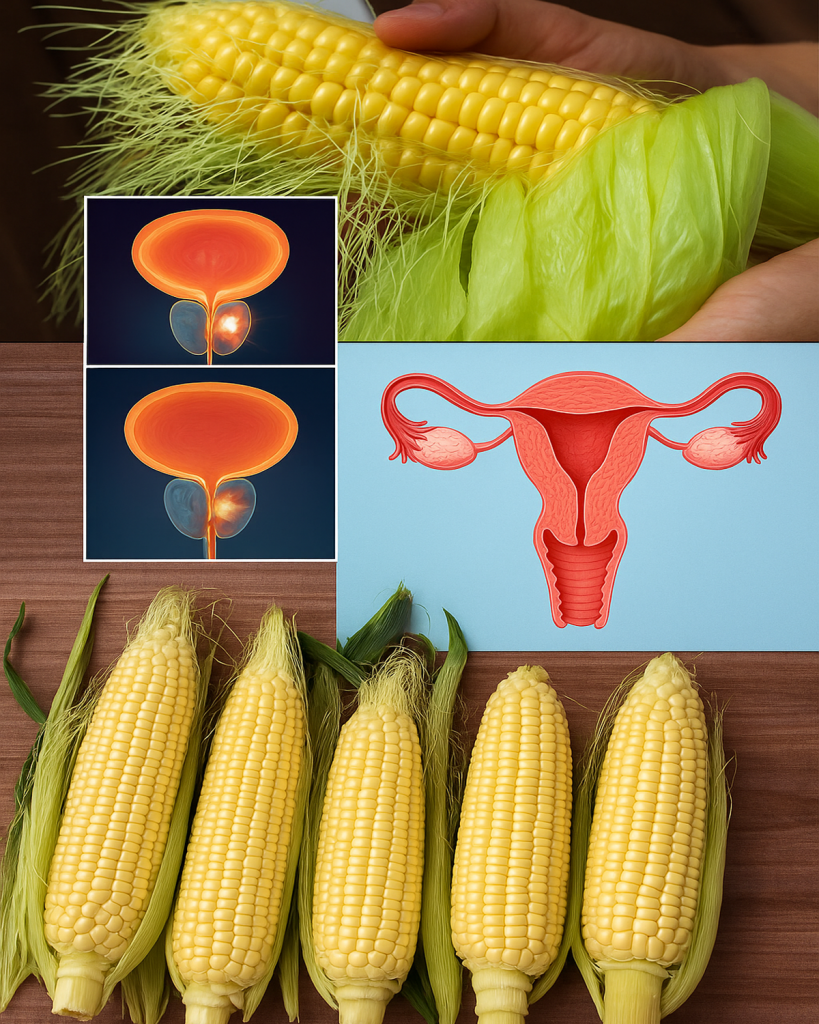
What Exactly Is Corn Silk?
Corn silk refers to the long, thread-like styles that grow from the female flower of the corn plant. Each strand is connected to an individual kernel, acting as a channel for pollination. While often discarded, these silky fibers are rich in plant compounds, flavonoids, and antioxidants.
Traditionally, people have dried corn silk or used it fresh to brew teas, infusions, or tinctures. In some cultures, it was combined with other herbs to create soothing tonics for the urinary system. Modern research has started to confirm what traditional healers observed long ago: corn silk contains biologically active compounds that may offer gentle health support.
Potential Health Benefits of Corn Silk
Supports Kidney and Bladder Health
Corn silk is often praised for its mild diuretic properties. This means it may help increase urine output, which in turn supports the natural flushing of the urinary system. Some people drink corn silk tea to reduce occasional water retention or support bladder comfort.
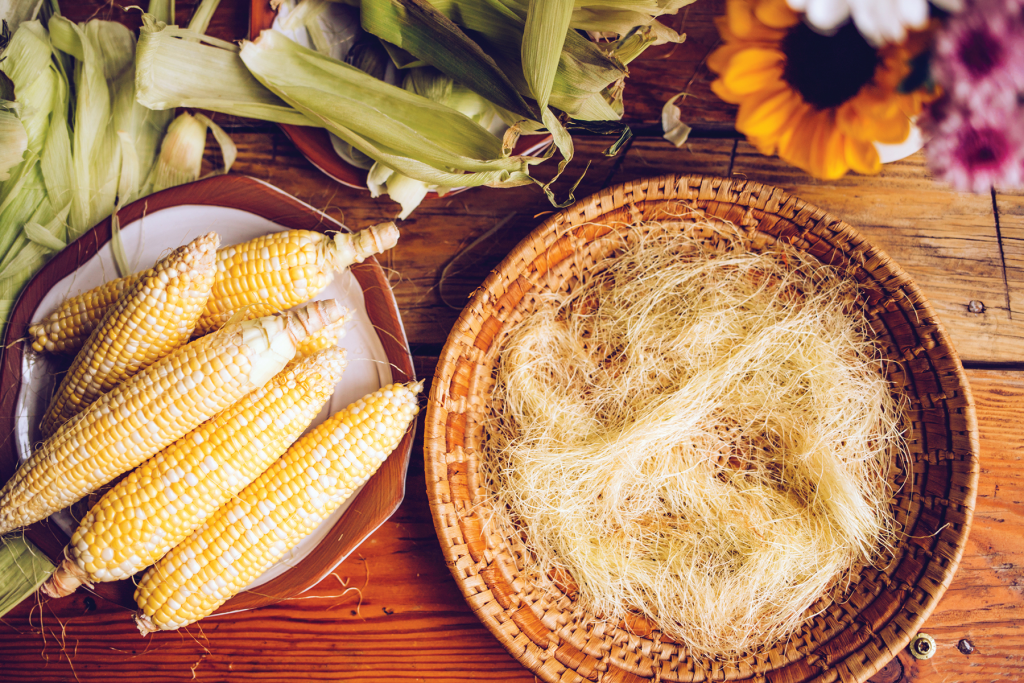
Rich in Antioxidants
The flavonoids and phenolic compounds found in corn silk act as antioxidants, helping the body fight oxidative stress. While more research is needed, these compounds are thought to protect cells from damage over time.
May Help Regulate Blood Pressure
Some early studies suggest that corn silk extracts could have a mild effect on lowering blood pressure. The potential diuretic effect may play a role, but this area of research is still in its early stages and requires further validation.
May Assist in Blood Sugar Balance
Preliminary research indicates that corn silk may support healthy blood sugar regulation. This benefit is of particular interest to people managing metabolic concerns, though it should never replace professional medical care.
Anti-Inflammatory Potential
Corn silk has been noted in some studies for its soothing properties. It may calm mild inflammation in the urinary tract and support overall comfort.
Digestive Support
Traditionally, corn silk tea has been used to ease occasional digestive upset and bloating. Its mild action makes it suitable as a gentle home remedy.
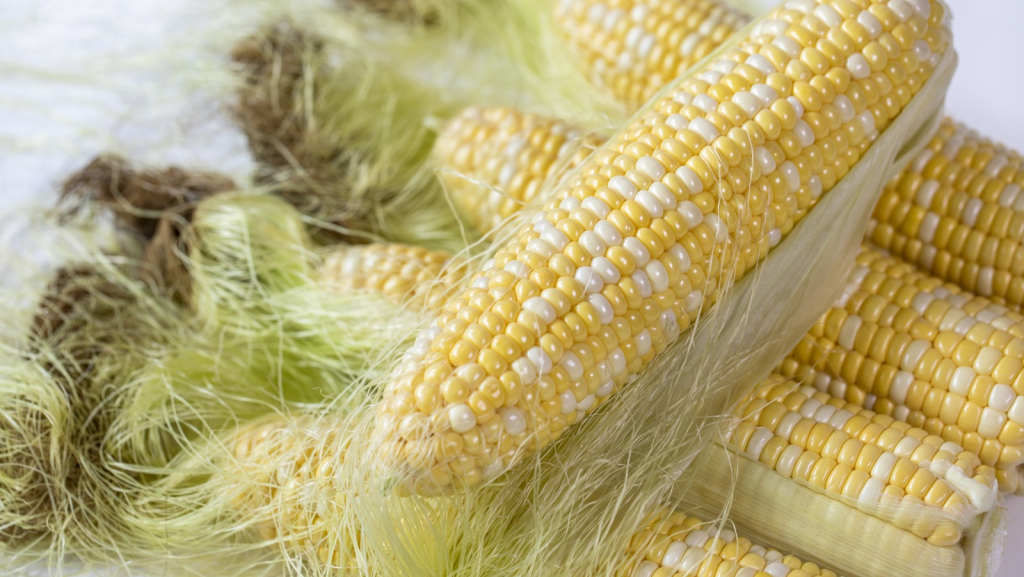
Quick Reference Table of Benefits
| Benefit | Description | Evidence Level |
|---|---|---|
| Kidney & bladder support | Gentle diuretic, supports urinary comfort | Traditional + emerging research |
| Antioxidant effects | Protects against oxidative stress | Moderate |
| Blood pressure support | Mild reduction in some cases | Preliminary |
| Blood sugar balance | Potential regulation benefits | Early research |
| Anti-inflammatory | May calm urinary tract irritation | Moderate |
| Digestive ease | Traditional use for bloating | Traditional |
How to Use Corn Silk
Corn Silk Tea
One of the simplest and most popular methods is to brew corn silk tea.
Instructions:
- Gather a small handful of fresh or dried corn silk.
- Rinse well if using fresh silk.
- Place in a teapot with 2–3 cups of boiling water.
- Let steep for 10–15 minutes.
- Strain and enjoy warm.
You can drink this tea once or twice daily. Some people prefer adding honey or lemon for flavor.
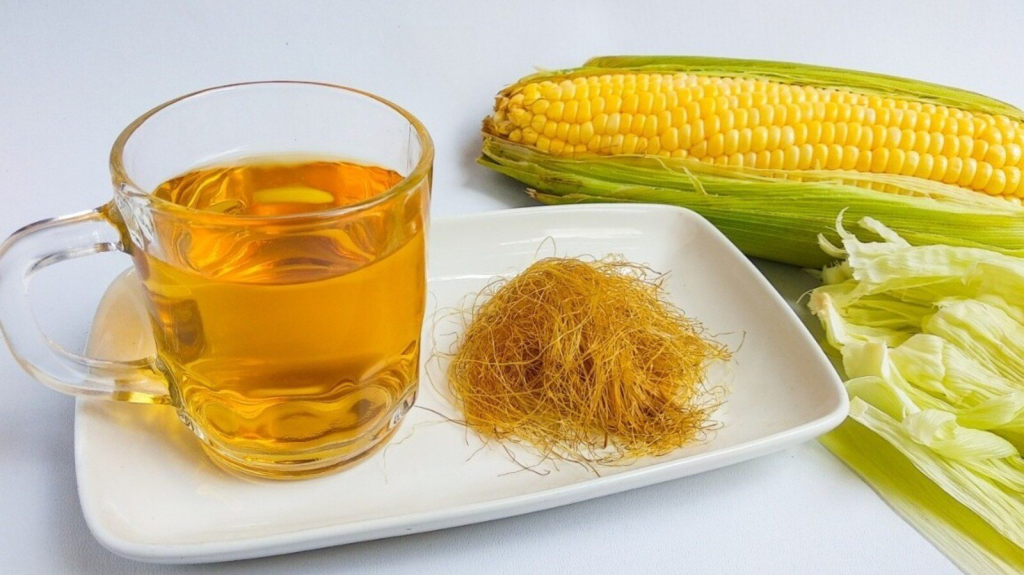
Corn Silk Powder or Extract
Corn silk is also available in powder or capsule form in some health food stores. This can be more convenient for those who don’t have access to fresh corn. Always follow the manufacturer’s dosage instructions.
Tinctures
Herbalists sometimes prepare corn silk tinctures by steeping the fibers in alcohol. This creates a concentrated extract. A few drops in water may provide a similar effect to tea but in a more potent form.
Culinary Use
While less common, finely chopped fresh corn silk can be added to soups or broths for a nutrient boost. Its flavor is mild and blends easily with other ingredients.
Everyday Tips for Using Corn Silk Safely
- Start Small: Begin with one cup of tea a day to see how your body responds.
- Stay Hydrated: Since corn silk may increase urination, drink enough water to maintain balance.
- Combine Wisely: Avoid mixing with strong diuretics or medications unless approved by a healthcare provider.
- Seasonal Use: Fresh corn silk is best used in the summer and early fall when corn is in season. Drying and storing it can make it available year-round.
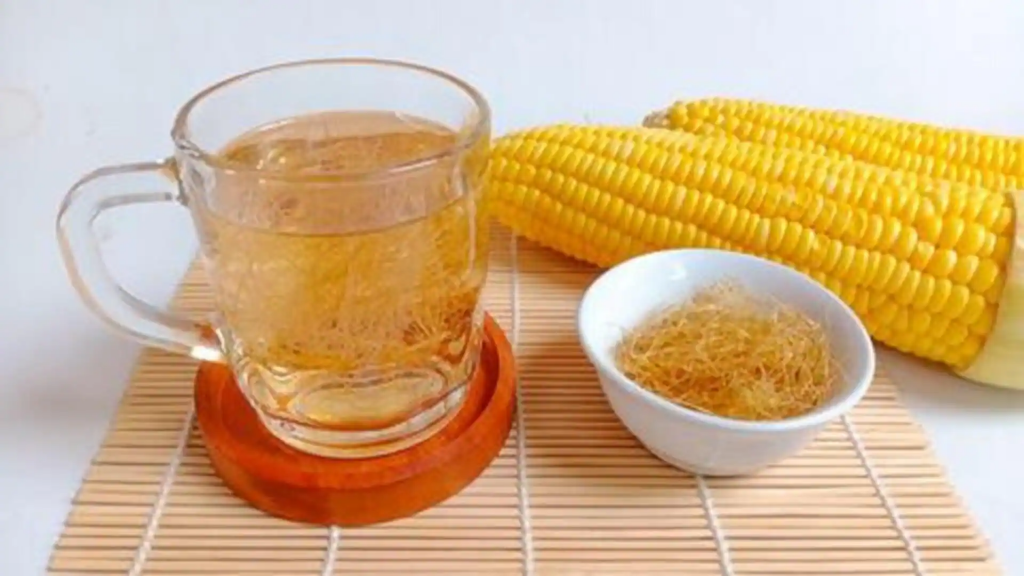
Precautions and Things to Know
Not a Substitute for Medical Care
Corn silk is a gentle natural remedy, not a treatment for kidney disease, infections, or chronic conditions. Always seek medical advice for persistent or severe symptoms.
Possible Interactions
Corn silk may interact with medications for blood pressure, diabetes, or diuretics. If you are taking prescribed drugs, consult your doctor before adding corn silk to your routine.
Pregnancy and Breastfeeding
There is not enough research to confirm corn silk’s safety during pregnancy or breastfeeding. It’s best to avoid unless advised by a healthcare professional.
Allergic Reactions
Although rare, some individuals may be sensitive to corn silk. If you experience itching, rash, or discomfort, discontinue use.
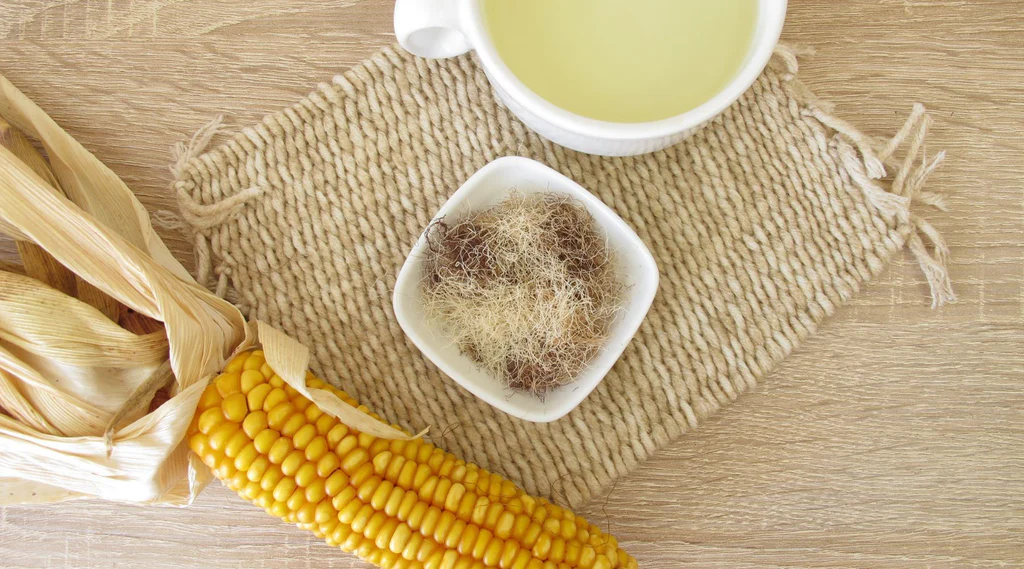
Real-Life Experiences
Anna, a wellness blogger, shared that she started drinking corn silk tea three times a week and noticed reduced bloating and a sense of lightness. Meanwhile, Michael, who spends long hours at a desk, found that the tea helped him feel less puffy at the end of the day.
While these stories are anecdotal and not scientific proof, they show how incorporating natural remedies can inspire healthier habits and mindful living.
Frequently Asked Questions
Can corn silk tea prevent kidney stones?
Corn silk may support urinary health, but it is not a guaranteed prevention method. Staying hydrated and following a balanced diet remain the best strategies.
How long can I store dried corn silk?
If kept in an airtight jar in a cool, dark place, dried corn silk can last up to one year.
Can children drink corn silk tea?
It’s generally recommended to avoid herbal remedies for young children unless approved by a pediatrician.
Does corn silk have calories?
Corn silk itself is very low in calories. The tea is essentially calorie-free unless sweetened.
Conclusion
Corn silk may look like kitchen waste, but it has a long tradition as a natural wellness aid. From urinary comfort to antioxidant support, its benefits are being rediscovered by modern health enthusiasts. Whether you try it as a tea, tincture, or supplement, corn silk offers a gentle way to complement a healthy lifestyle.
Remember, this information is for educational purposes only and not a substitute for professional medical advice. If you have ongoing health concerns, always consult a qualified healthcare provider before starting any new herbal routine.




